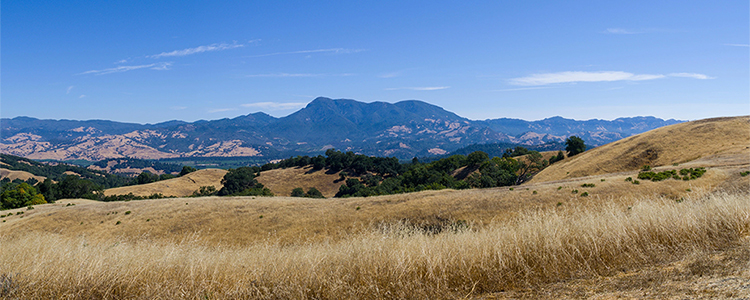Santa Rosa short-term rentals will need permits under new emergency law
- Oct 29, 2021 | Jennifer Sokolowsky

Santa Rosa, California, has passed an emergency ordinance that requires short-term rental hosts to register with the city and collect lodging taxes from guests, among other rules.
The new regulations, which went into effect October 13, represent the city’s response to growing tensions between short-term rentals and neighbors, as well as greater demand on city resources to respond to complaints. After meetings in August and September, the Economic Development Subcommittee of the City of Santa Rosa recommended the city take action to regulate the industry.
According to the city, approximately 200 registered short-term rental properties are operating in Santa Rosa, but an outside firm estimated that more than 350 Santa Rosa properties are advertising as short-term rentals.
The temporary regulations are expected to apply for at least six months. Meanwhile, the city will work on a more comprehensive short-term rentals law that will be presented to the Santa Rosa Planning Commission and City Council sometime in 2022.
Under the emergency ordinance, operators must hold a city-issued short-term rental permit in order to offer, rent, or advertise a vacation rental. Permits have a fee of $1,200 and are valid for one year then must be renewed. They are nontransferrable.
When short-term rental hosts apply for their permit, they must designate a local contact who is available by phone 24 hours per day, seven days per week whenever the property is rented, respond to complaints within 30 minutes, and resolve issues within 45 minutes.
Operators of existing vacation rentals who have registered their property for transient occupancy tax (TOT) and Business Improvement Area (BIA) assessments by October 27 are eligible to apply for a short-term rental permit until December 3. They may continue operating until their application is approved or denied.
New operators can apply for short-term rental permits starting December 4. Starting December 3, new permits will not be issued for non-hosted short-term rentals that are within 1,000 feet from the property line of another non-hosted short-term rental. Once a short-term operator receives a permit, the city will notify all neighbors within 600 feet of the short-term rental property.
Short-term rental properties must also comply with building and safety codes and follow rules regarding:
- Minimum number of parking spots
- Occupancy limits
- Number of daytime visitors
- Noise restrictions and quiet hours
- Recreational fires, firepits, outdoor fireplaces, and grills
- Prohibitions on events
- Evacuation notifications
Penalties for breaking the law start at $500 for the first violation and go up to $2,000 and revocation of the operator’s short-term rental permit for a third violation within one year.
All Santa Rosa short-term rental hosts must also register with the city tax collector and get a TOT account number. Hosts are required to collect the tax from guests and pass it on to the city. Operators must keep records of the amount of TOT they’ve paid for three years and share them with the city upon request. Short-term rental operators are also required to pay BIA assessments.
Although Airbnb and Vrbo collect lodging taxes on behalf of their hosts in other California cities, they do not do so in Santa Rosa, so operators are responsible for TOT compliance themselves.
Santa Rosa lags behind neighboring governments in providing a regulatory framework for the short-term rental industry.
In unincorporated Sonoma County, for example, short-term rentals must have a permit, a certified vacation property manager, and are limited to certain zones of the county. Hosts must also collect TOT from guests. Airbnb automatically collects lodging taxes for its listings in Sonoma County, but Vrbo does not.
In Healdsburg, short-term rentals are only permitted in the commercial district and are prohibited in residential areas. Operators are required to collect TOT from guests. Neither Airbnb nor Vrbo collect these from guests on behalf of Healdsburg hosts.
Sonoma City has phased out new vacation rentals, with an exception for properties that adaptively reuse a historic structure. However, previously operating licensed short-term rentals are still allowed. Vacation rentals are required to have a property manager and collect TOT from guests. Neither Airbnb nor Vrbo collect TOT from guests for Sonoma City listings.
Rohnert Park has banned short-term rentals of whole homes but allows room rentals for 14 days or fewer. Hosts must obtain a business license and collect TOT. Neither Airbnb nor Vrbo collect TOT in Rohnert Park.
Windsor, however, is currently scheduling public hearings for a proposed short-term rental law that could be adopted next year.
MyLodgeTax can help California short-term rental hosts automate lodging tax to streamline and simplify their lodging tax compliance. For more on lodging taxes in California, see our state Lodging Tax Guide. If you have tax questions related to vacation rental properties, drop us a line and we’ll get back to you with answers.











